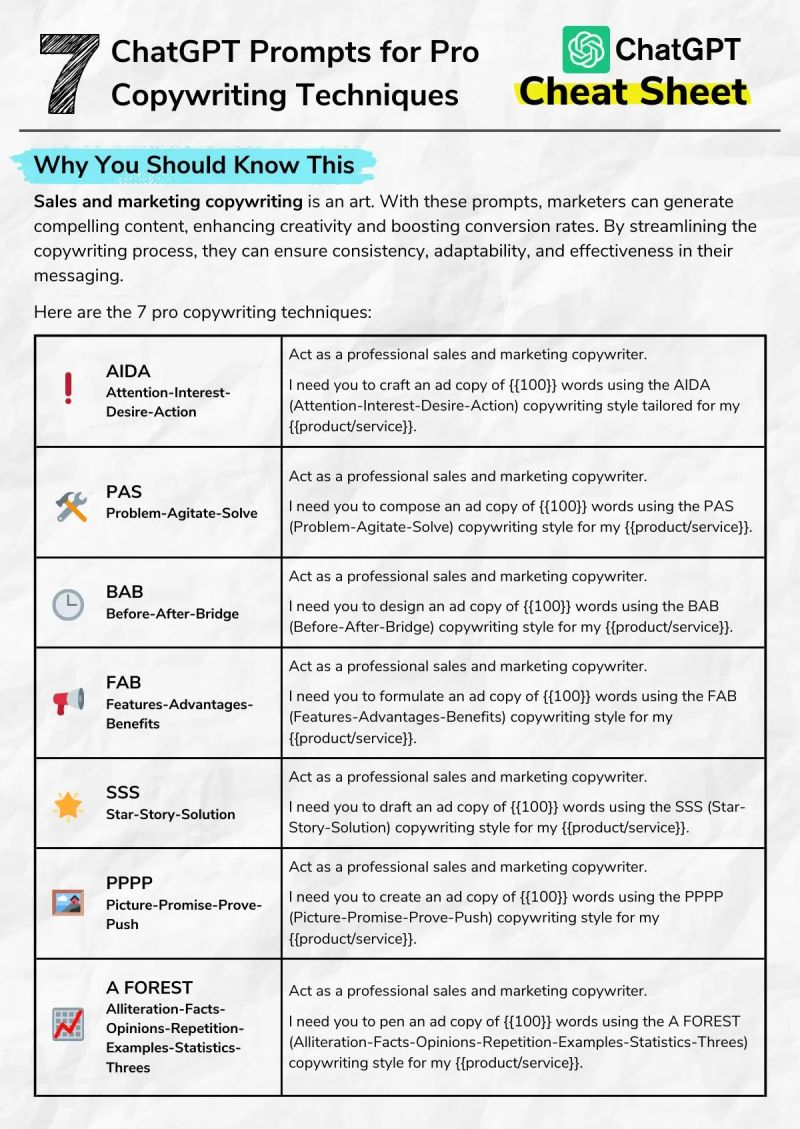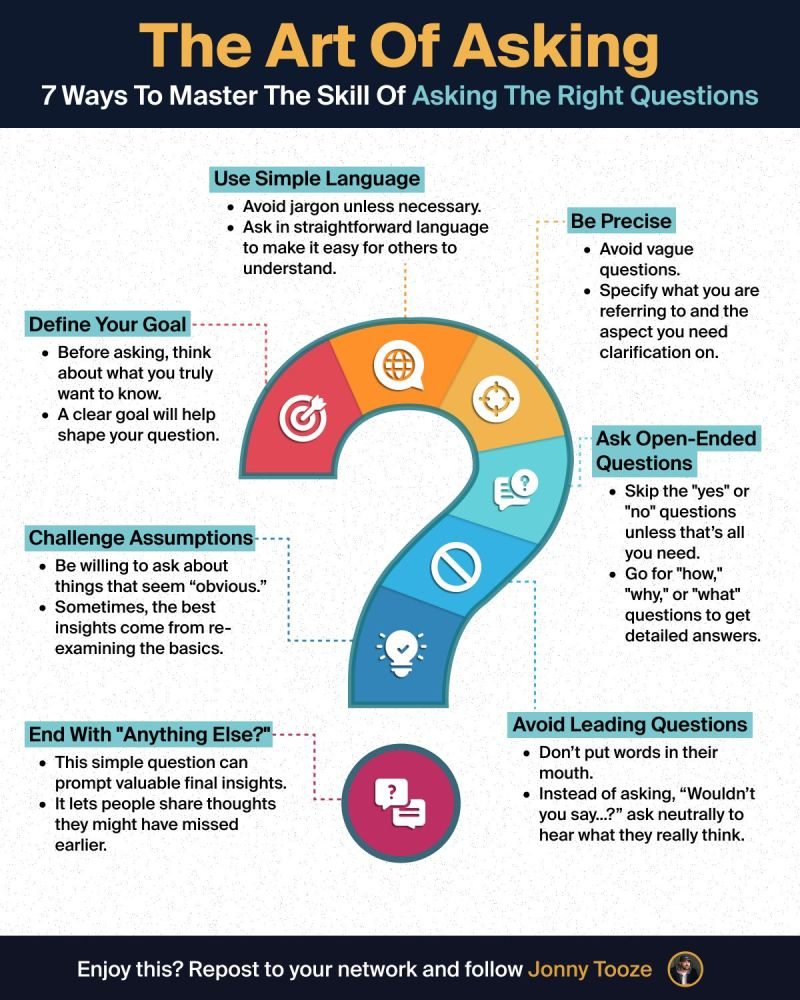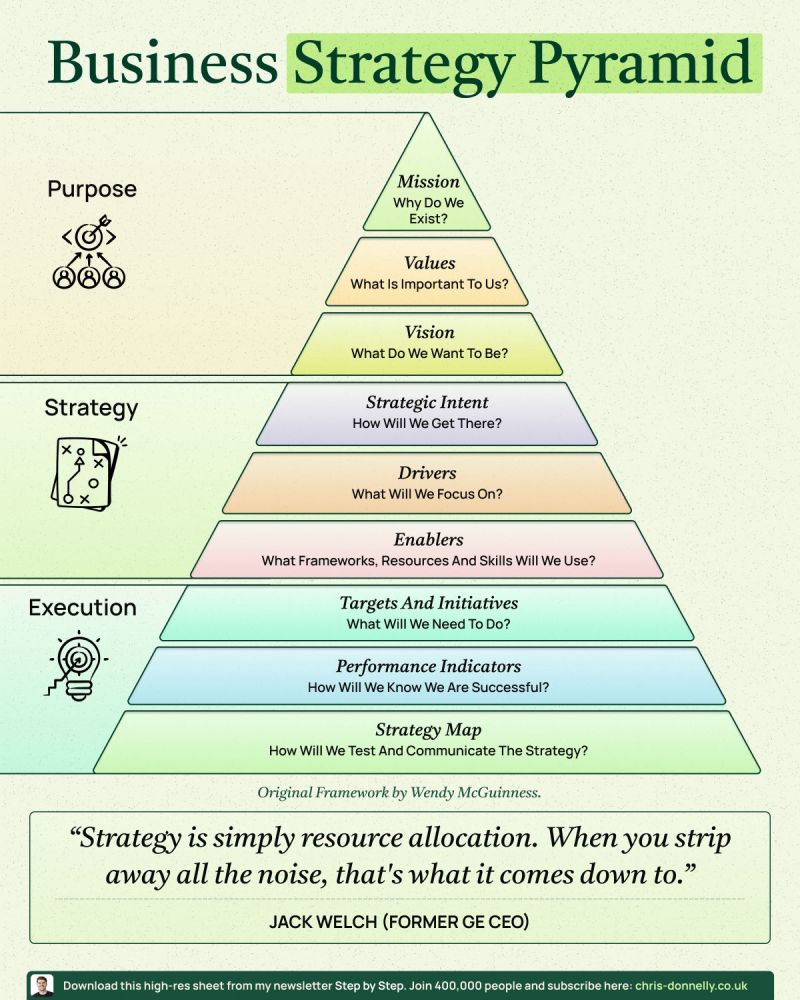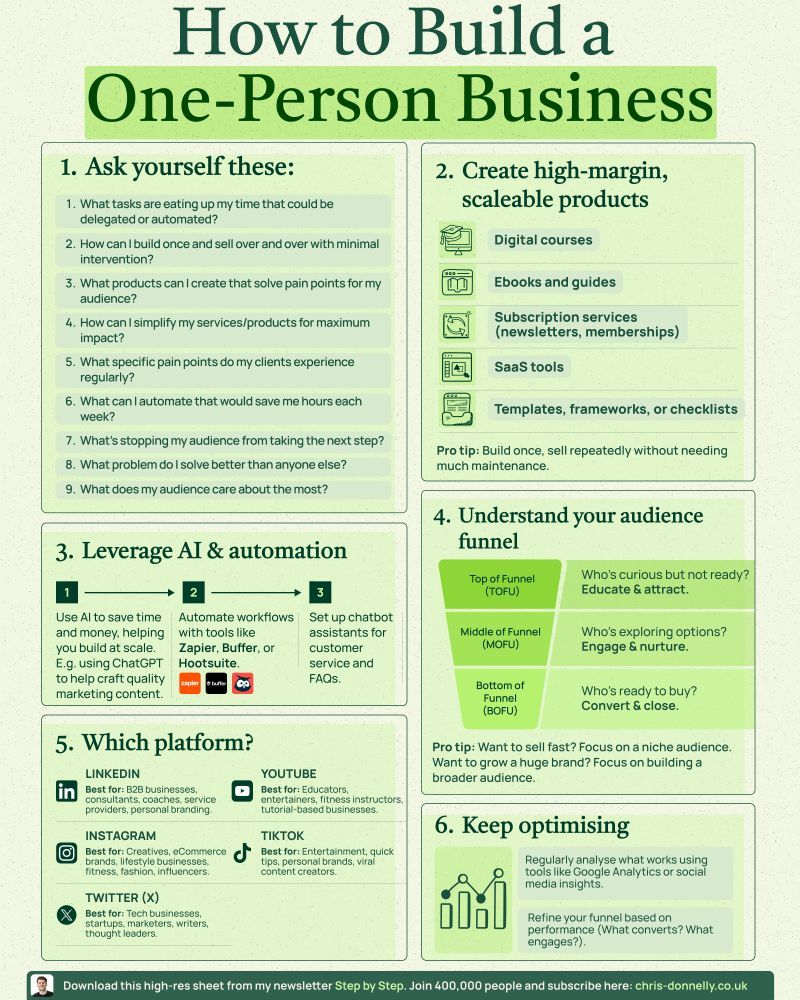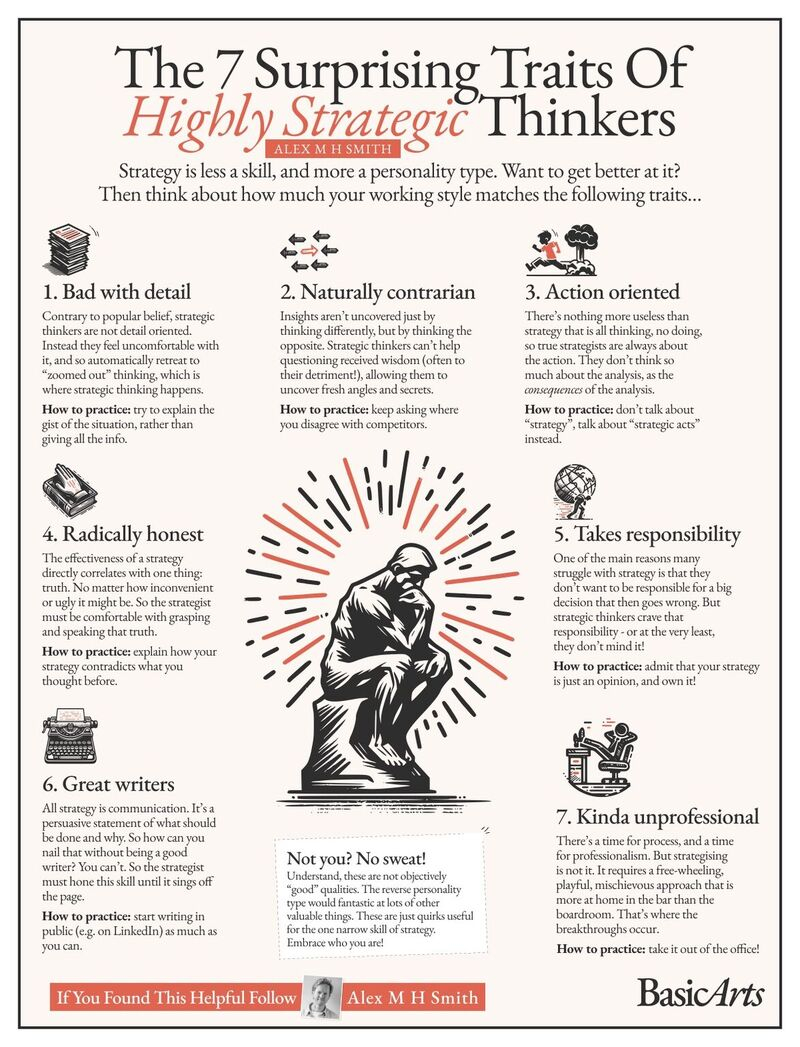"How to create a multi-million $ one-person business.
The 6 fundamental steps to take:
Feel like you're lost in your career?
Or perhaps lacking the life you want?
The solution:
Building your own one-person business.
This can buy you:
- Freedom
- Flexibility
- Your dream lifestyle
Here are 6 fundamental steps to take.
To get started today:
1. Ask yourself these
1. What tasks are eating up my time that could be delegated or automated?
2. How can I build once and sell over and over with minimal intervention?
3. What products can I create that solve pain points for my audience?
4. How can I simplify my services/products for maximum impact?
5. What specific pain points do my clients experience regularly?
6. What can I automate that would save me hours each week?
7. What’s stopping my audience from taking the next step?
8. What problem do I solve better than anyone else?
9. What does my audience care about the most?
2. Create high-margin, scaleable products
For example:
Digital courses
Ebooks and guides
Subscription services
SaaS tools
Templates, frameworks, or checklists
Pro tip: Build once, sell repeatedly without needing much maintenance.
3. Leverage AI & automation
1. Use AI to save time and money, helping you build at scale. E.g. using ChatGPT to help craft quality marketing content.
2. Automate workflows with tools like Zapier, Buffer, or Hootsuite.
3. Set up chatbot assistants for customer service and FAQs.
4. Audience funnel 🪹
Think about it like this:
TOFU - Who's curious but not ready?
MOFU - Who's exploring options?
BOFU - Who's ready to buy?
Pro tip: Focus on a niche audience for easier targeting and marketing.
5. Which platform?
LINKEDIN
Best for: B2B businesses, consultants, coaches, service providers, personal branding.
INSTAGRAM
Best for: Creatives, eCommerce brands, lifestyle businesses, fitness, fashion, influencers.
TWITTER (X)
Best for: Tech businesses, startups, marketers, writers, thought leaders.
YOUTUBE
Best for: Educators, entertainers, fitness instructors, tutorial-based businesses.
TIKTOK
Best for: Entertainment, quick tips, personal brands, viral content creators.
6. Keep optimising
Regularly analyse what works using tools like Google Analytics or social media insights.
Refine your funnel based on performance (What converts? What engages?).
If you're unhappy in your career;
Start building something on the side.
"How to create a multi-million $ one-person business.
The 6 fundamental steps to take:
Feel like you're lost in your career?
Or perhaps lacking the life you want?
The solution:
Building your own one-person business.
This can buy you:
- Freedom
- Flexibility
- Your dream lifestyle
Here are 6 fundamental steps to take.
To get started today:
1. Ask yourself these ❓
1. What tasks are eating up my time that could be delegated or automated?
2. How can I build once and sell over and over with minimal intervention?
3. What products can I create that solve pain points for my audience?
4. How can I simplify my services/products for maximum impact?
5. What specific pain points do my clients experience regularly?
6. What can I automate that would save me hours each week?
7. What’s stopping my audience from taking the next step?
8. What problem do I solve better than anyone else?
9. What does my audience care about the most?
2. Create high-margin, scaleable products 📈
For example:
🖥️ Digital courses
📖 Ebooks and guides
🔁 Subscription services
💻 SaaS tools
📋 Templates, frameworks, or checklists
Pro tip: Build once, sell repeatedly without needing much maintenance.
3. Leverage AI & automation 🤖
1. Use AI to save time and money, helping you build at scale. E.g. using ChatGPT to help craft quality marketing content.
2. Automate workflows with tools like Zapier, Buffer, or Hootsuite.
3. Set up chatbot assistants for customer service and FAQs.
4. Audience funnel 🪹
Think about it like this:
TOFU - Who's curious but not ready?
MOFU - Who's exploring options?
BOFU - Who's ready to buy?
Pro tip: Focus on a niche audience for easier targeting and marketing.
5. Which platform? 🚉
LINKEDIN
Best for: B2B businesses, consultants, coaches, service providers, personal branding.
INSTAGRAM
Best for: Creatives, eCommerce brands, lifestyle businesses, fitness, fashion, influencers.
TWITTER (X)
Best for: Tech businesses, startups, marketers, writers, thought leaders.
YOUTUBE
Best for: Educators, entertainers, fitness instructors, tutorial-based businesses.
TIKTOK
Best for: Entertainment, quick tips, personal brands, viral content creators.
6. Keep optimising ⚒️
Regularly analyse what works using tools like Google Analytics or social media insights.
Refine your funnel based on performance (What converts? What engages?).
If you're unhappy in your career;
Start building something on the side.



